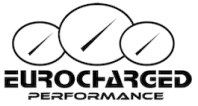Results 1 to 4 of 4
-
12-03-2014, 06:13 PM #1
Ferrari creates the invitation only FXX K track special with KERS and 1035 horsepower
In case the 458 Speciale just was not doing it for you as a track car Ferrari is introducing the FXX K track special based on their FXX hybrid supercar. The K as you probably guessed stands for KERS (Kinetic Energy Recovery System) which is designed to recover energy upon deceleration and this energy is fed into the battery.

This is not a car that will be racing in any particular series but for owners who want the highest performance Ferrari track car money can buy short of their F1 car. Engine output is increased from the 950 horsepower of the FXX street car to 1030 horsepower.
Ferrari increased the output of the 789 horsepower 6.2 liter V12 to 848 horses. This is done thanks to new camshafts, new intake manifolds, and a new exhaust system. The standard 161 horsepower electric motor is also addressed to provide 187 horsepower likely due to just giving it some more juice.
The engine tweaks are only part of the equation as the aero is revised giving the car somewhat of a jet fighter look with the rear wings. This apparently results in 50% more downforce and we would not doubt it. The car also comes with slicks, a revised track oriented cabin.
Want one? Well it is invitation only so too bad. Plus they are not even saying how much it costs but expect well over $2 million dollars as this is designed to rival and exceed the McLaren P1 GTR program. Whomever is invited to this probably is already on the P1 GTR shortlist anyway. Too bad we likely will never see these two go head to head as you likely have to be invited to a track event where both are in attendance as well.
One can dream, right?
WORLD PREMIERE OF THE FXX K AT THE FERRARI FINALI MONDIALI IN ABU DHABI




Maranello, 3rd December 2014 – Ferrari's new FXX K research and development programme receives its world premiere next weekend at the Yas Marina Circuit in Abu Dhabi. The laboratory-car is based on Maranello's first hybrid model and will grace the world's tracks from next year onwards. The K in its moniker is a reference to the "KERS" kinetic energy recovery system it adopts in maximising its track performance.
Unfettered by homologation and racing regulations, the FXX K will never be used in competition. It was, in fact, developed to be completely uncompromising, incorporating technological innovations that will guarantee an unprecedented driving experience to the exclusive group of Client-Test Drivers with whom the Prancing Horse will roll out a test programme over the coming two years.
The car's enormous potential is attested to by two significant figures: a total power output of 1050 cv (860 cv delivered by its conventional V12 engine and 190 by its electric motor) and maximum torque in excess of 900 Nm.
The FXX K's 6262 cc V12 features new camshafts and a modified valve train with mechanical rather than hydraulic tappets. The intake manifolds have been redesigned and given a special type of polishing treatment. The exhaust system has been modified as its silencers have been eliminated.
The HY-KERS system has been evolved specifically for pure performance with the result that the driver can control the function logics from the specific 4-setting Manettino on the centre console: Qualify, for maximum performance within a limited number of laps; Long Run to optimise performance consistency; Manual Boost for instant maximum torque delivery; and Fast Charge, for a fast recharge of the car's battery.
A focus on delivering maximum efficiency at every stage of every track lap has resulted in extensive but integrated work on the entire car body in terms of both active and passive aerodynamics.
The front of the car is dominated by a twin-profile spoiler and a larger splitter, which is 30 mm lower, with a gap in its centre. This design is an application of the concepts developed to improve aero balance in the GT category of the WEC, which Ferrari has won for three consecutive years. Two pairs of vertical elements, an endplate and, externally, a dive plane, together with vertical fins channel the air towards the car's flanks, generating a longitudinal vortex that creates a localised depression. This in turn sucks the wake from the wheels to the outside of the aerodynamic underbody. Along with the side skirts that extend out from the sills, the vortex helps isolate the airflow from the underbody to boost its efficiency.
The solutions on the rear of the car are highly sophisticated, too. The tail section is now higher and the mobile spoiler extends further for a total increase in extension of 60mm when fully deployed. A vertical fin and a small wing each side of the tail act as guide vanes in the low drag configuration and boost the spoiler's efficiency in the high downforce one. This system also creates considerable downforce at the rear of the car, allowing the use of an extreme diffusion volume for the rear diffuser which optimises air extraction from the underbody. The section of the flat underbody just ahead of the rear wheels is also exploited to the full to generate downforce thanks to the reduced pressure in the wheel arch guaranteed by the direct connection to the rear of the car by a by-pass duct.
The result is a 50% improvement in downforce in the low drag configuration and a 30% improvement in the more aggressive downforce configuration, resulting in a figure of 540 kg at 200 km/h.
Vehicle dynamics are further improved by the adoption of Pirelli slicks complete with sensors that monitor longitudinal, lateral and radial acceleration, as well as temperature and pressure. This ensures an accurate analysis of the interaction between the tyre and track surface, providing even more vital data to enable the traction control system to guarantee maximum performance.
The intervention level of the E-Diff electronic differential, F1-Trac traction control, Racing SSC (Side Slip Angle Control) - now specially calibrated to suit the car's slick tyres - and the high-performance ABS can be controlled using the five-position Manettino on the steering wheel.
TECHNICAL SPECIFICATIONS
KERS system
ICETotal maximum power 1050 cv Total maximum torque >900 Nm V12 maximum power* 860 cv @ 9200 rpm Maximum revs 9250 rpm V12 maximum torque 750 Nm @ 6500 rpm Electric motor output 140 Kw (190 cv)
DimensionsType 65-deg. V12 Bore and stroke 94 x 75.2 mm Total displacement 6262 cc Specific power 137 cv/l
GearboxLength 4896 mm Width 2051 mm Height 1116 mm Wheelbase 2650 mm
Suspension7-speed DCT
Tyres (Pirelli P-Zero slicks with sensors)Front double wishbones Rear multi-link
Carbon ceramic brakes (Brembo)Front 285/650 - R19 x10.5 Rear 345/725 - R20x13
Electronic controlsFront 398 x 223 x 36 mm Rear 380 x 253 x 34 mm
* with dynamic ram effectESC stability control High perf ABS/EBD Performance anti-lock system/electronic brake balance EF1-Trac F1 electronic traction control integrated with the hybrid system E-Diff 3 third generation electronic differential SCM-E Frs magnetorheological damping with twin solenoids (Al-Ni tube) Aerodynamics active
-
12-04-2014, 06:56 PM #2
-
12-04-2014, 07:45 PM #3
 Timeout
Timeout

- Join Date
- Apr 2014
- Location
- ATL
- Posts
- 3,192
- Rep Points
- 2.1
- Mentioned
- 18 Post(s)
- Rep Power
- 0
-
12-04-2014, 11:30 PM #4
 Member
Member

- Join Date
- Nov 2013
- Location
- SOCAL
- Posts
- 70
- Rep Points
- 38.8
- Mentioned
- 2 Post(s)
- Rep Power
- 0









 Quote
Quote








Welcome to a...
mask is now here!